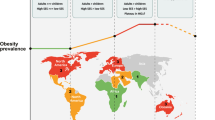Abstract
Introduction. Obesity is associated with risk of breast cancer after menopause. Circulating levels of leptin are high in obesity and leptin stimulates growth of breast cancer cells.
Material and methods. In a case-control study nested within the Northern Sweden Health and Disease Cohort, we measured leptin levels in prediagnostic plasma from 149 postmenopausal women who were diagnosed with breast cancer at a mean time 1.7 years (SD 2.0) after recruitment and among 258 control subjects.
Results. No significant association between plasma levels of leptin and breast cancer risk was observed. Odds ratios (ORs) of breast cancer with increasing levels of leptin were 1.00 [referent], 1.01 [95% CI = 0.58–1.84], 0.65 [0.36–1.18], and 0.94 [0.53–1.67], and (p for trend= 0.54). Adjustment for smoking, body mass index, and plasma insulin did not affect risk estimates.
Discussion. These data do not support the hypothesis that plasma leptin is a risk factor for breast cancer.
Similar content being viewed by others
Author information
Authors and Affiliations
Rights and permissions
About this article
Cite this article
Stattin, P., Söderberg, S., Olsson, T. et al. Plasma Leptin and Breast Cancer Risk: A Prospective Study in Northern Sweden. Breast Cancer Res Treat 86, 191–196 (2004). https://doi.org/10.1023/B:BREA.0000036782.11945.d7
Issue Date:
DOI: https://doi.org/10.1023/B:BREA.0000036782.11945.d7




